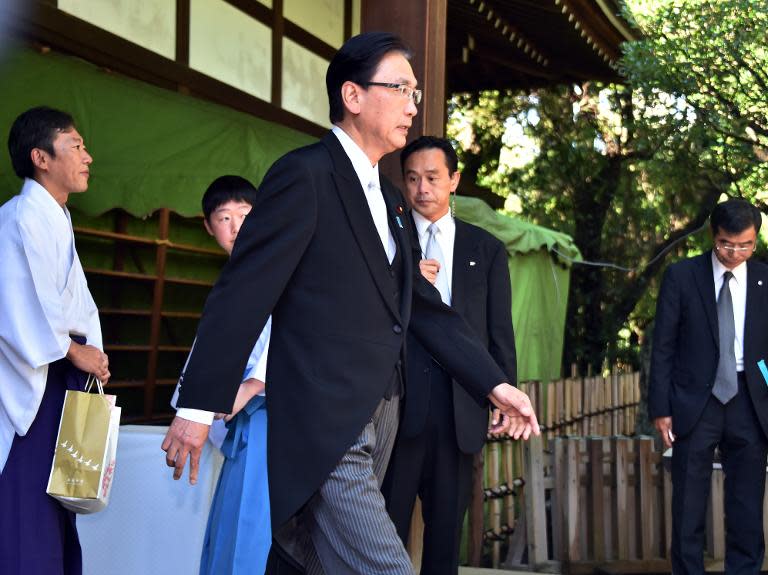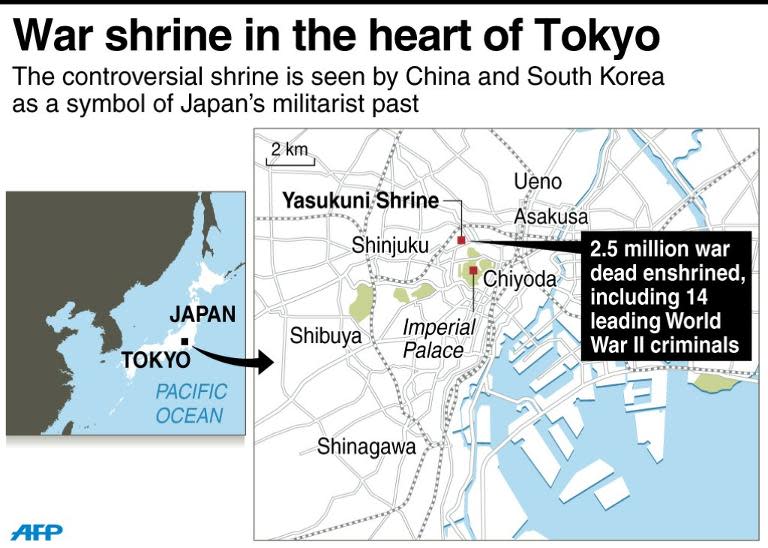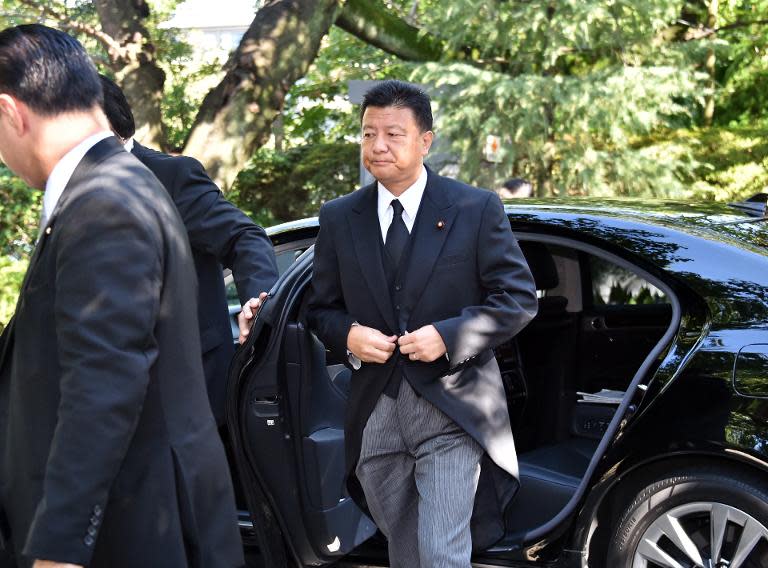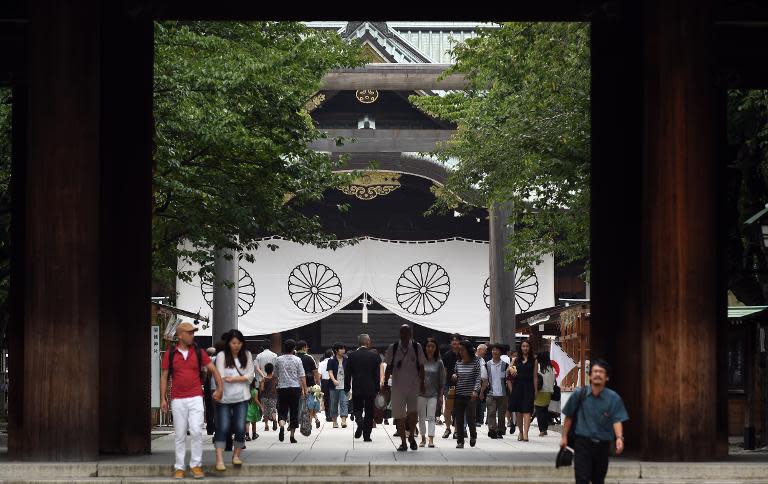Japanese politicians visit controversial war shrine
Dozens of Japanese politicians visited a controversial war shrine Friday in a move criticised by China and South Korea, which condemn it as a symbol of Tokyo's militarist past. More than 80 politicians -- including three cabinet ministers -- went to the leafy Yasukuni shrine in downtown Tokyo, but Prime Minister Shinzo Abe stayed away, after a visit in December drew an angry reaction from Japan's neighbours. It also earned Abe a diplomatic slap on the wrist from the United States, a key ally, which said it was "disappointed" by the decision, with regional relations already strained over territorial disputes and vastly different views of history. On Friday, the premier sent a donation to the shrine through an aide in an apparent bid to mend ties with Beijing and Seoul. But both South Korea and China reacted with renewed anger to the latest annual pilgrimage by lawmakers. Chinese foreign ministry spokeswoman Hua Chunying said Beijing was "firmly opposed" to both the visits and Abe's donation, while South Korea called on Japan's leadership to "abandon their revisionist attitudes". The 145-year-old Shinto shrine honours some 2.5 million citizens who died in World War II and other conflicts, including 14 indicted war criminals such as General Hideki Tojo, who authorised the attack on Pearl Harbor, drawing the United States into the war. Visits by Japanese politicians every August 15 -- the anniversary of Japan's WWII surrender -- enrage neighbouring nations, which view them as an insult and a painful reminder of Tokyo's aggression in the first half of the 20th century, including a brutal 35-year occupation of the Korean peninsula. Abe has been trying to hold talks with Chinese President Xi Jinping at a regional meeting in Beijing in November. The leaders, both nationalists, have not held a bilateral summit since they came to power more than 18 months ago. Abe has also not held talks with his South Korean counterpart. - Lost lives - On Friday, for the second year in a row, Abe broke with two decades of tradition by omitting any expression of remorse for Tokyo's past aggression in Asia during a remembrance ceremony speech. "By sincerely facing history and retaining those lessons deeply in our minds, we will open the way to the future of the country for the present and next generations," he said, with Emperor Akihito and Empress Michiko in attendance. Japan's hawkish premier, who has moved to expand the country's military since he swept to power in late 2012, defends the visits to Yasukuni as being no different than politicians going to war memorials in other countries. But key ministers, including Abe's deputy Taro Aso and Foreign Minister Fumio Kishida, have stayed away. Keiji Furuya, chairman of the National Public Safety Commission, was the first minister to pay homage at the site Friday -- the 69th anniversary of Japan's surrender. "It is natural to express my sincere condolences for the souls of those who sacrificed their lives for the country," he told reporters at the shrine. Soon after Furuya, internal affairs and communications minister Yoshitaka Shindo also visited. Shindo's grandfather was General Tadamichi Kuribayashi, the figure sympathetically depicted by actor Ken Watanabe in Clint Eastwood's film "Letters from Iwo Jima". Also attending was Tomomi Inada, minister for administrative reforms, media reports said. Under scorching sunshine, the shrine was also crowded with hundreds of ordinary people, including veterans in army uniforms carrying Japan's "rising sun" national flags and former military flags. Other visitors released white doves -- a symbol of peace. The annual August ceremonies also coincide with the Obon summer holiday, when many Japanese visit their hometowns and pay respects to ancestors. "My grandfather's brother is here," said Katsuhiro Komatsu. "I don't know what kind of person he was, I never knew him. But he lost his life during the war at a very young age, so I feel gratitude and respect towards him."





